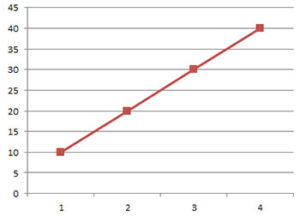 There has been a lot of talk lately about data. Who is collecting it and how it is used have been discussed quite often. What hasn’t been discussed is if the data is accurate. Beyond showing an ad for something you looked at, how accurate is the data you are basing your decisions on?
There has been a lot of talk lately about data. Who is collecting it and how it is used have been discussed quite often. What hasn’t been discussed is if the data is accurate. Beyond showing an ad for something you looked at, how accurate is the data you are basing your decisions on?
Is it outdated?: It recently came to light that many pharmaceutical and medical companies were basing there work on MS on the number of patients. The report that was considered the industry standard was based on a study conducted in the mid 1970s. Is it still accurate? Not even close. More recent work has shown the number of patients grew immensely. Don’t base your decisions on outdated information.
Is it accurate?: While Facebook claims its data is accurate, the truth may be very different. I recently looked at the profile their data collected on me. According to Facebook I am a small business owner (true) who is taking care of his parents (false, both of my parents are long deceased) and is married to an African-American woman (false). It also got my political beliefs incorrect. Unless advertisers are targeting small business owners, every ad targeted to me is missing the mark. Make sure the data you are using is accurate.
Is it biased?: Most people think data is data but that isn’t true. The best example was the polls for the 2016 presidential election. These polls were biased towards Hillary Clinton. This is not because the people collecting the data were biased, but because large numbers of Trump supporters refused to participate. This caused inaccurate information to be collected because the sample was not representative of the group they were trying to poll. Data biases are hard to weed out, but it is important to do so.
Using data is critical to your success. Make sure you know the source, how it is collected, and how accurate it is.


Connect With Us